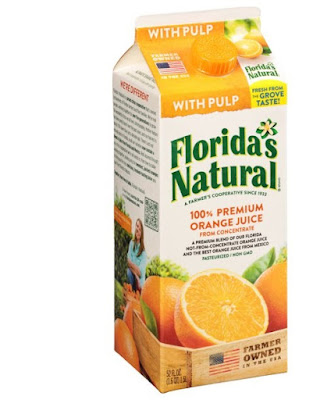Who doesn’t like bananas? One of my favorite fruits. Such a fave, that I eat a banana every morning. What are some health benefits and convenience of eating bananas?
Easy and convenient
- Bananas are now available in grocery stores all year. One doesn’t have to wait for them to be in season.
- Bananas are easy to store, don’t need refrigeration and easy to pack in a lunch.
- Kids find bananas easy to eat.
If you ever went to a school lunch room when apples are served, you would be shocked to see how many apples have a tiny bite in them and then the rest of the apple hits the garbage can. But when bananas are served, the kids usually eat all of the banana.
What are the health benefits of bananas?
- Potassium: Loaded with the mineral, potassium. “A medium banana gives you 422 milligrams, which is 9% of what you need every day.” Potassium helps you lower your blood pressure. How? Potassium helps your body get rid of sodium so it really helps manage blood pressure. As I noted in a previous blog, I was talking to a custodian and she stated she had high blood pressure. I told her to eat a banana every day. Why? Because bananas have potassium which would help lower her blood pressure. No one had told her about potassium and how foods high in potassium would be helpful to those with high blood pressure. Another benefit of potassium is that it helps the walls of your blood vessels relax, which also helps lower blood pressure.
- Fiber: I have written many times about how important fiber is to good health. (See: Easy food habits to adopt for a healthier you in 2023 ). One banana provides about 3 grams of fiber, or about 10% of what you need every day. The soluble fiber in bananas help lower cholesterol and can “help ease inflammation”. Fiber in foods help you feel fuller, longer. So a good choice for people who want to lose weight.
- Prebiotics – you probably heard of the good bacteria in foods like yogurt. Well those good bacteria need to be fed to thrive in your gut. What do these good bacteria eat? Fiber. The fiber in bananas help those good bacteria thrive.
What are some other health benefits of bananas?
- May lower your risk of stroke
- Can help keep your bones healthy as you age
- Helps your muscles work better
- Can help prevent kidney stones (but for those with kidney problems, too much potassium not good. Check with your doctor.)
- Lessen lactose intolerance
- Ease irritable bowel syndrome
What about diabetics?
Bananas do provide carbs so diabetics need to be aware of this. WebMD notes, “If you have diabetes, you can enjoy half a banana when you need a snack.” A medium banana gives you about 27 grams of carbs.
What about exercise and recovery?
I like to eat a banana before I walk or do a morning workout. Why? Because bananas provide me with a quick source of energy. What about post-workout? Most trainers recommend some carbs after a workout to help with recovery.
What other nutrients do bananas provide?
- Vitamin B-6 – many people haven’t even heard of vitamin B-6. But bananas supply you with about 25% of what you need each day. B-6 is good for your metabolism. Important for brain development during pregnancy and infancy and can help your immune system.
- Vitamin C – Although bananas aren’t a rich source of vitamin C, one banana provides about 10 milligrams so a decent contribution to getting about 75-90 milligrams a day. Vitamin C helps your immune system, helps your skin build collagen, may help protect again heart disease, cancer and promotes good eye health. (See: Foods to help prevent wrinkles ).
- Magnesium – a mineral important for strong bones, and also control of blood pressure and blood sugar levels. One banana gives you about 8% of your daily needs.
- Vitamin A – usually this vitamin is associated with dark green and dark orange foods like carrots, apricots, spinach. But bananas do provide some vitamin A. Vitamin A is good for your eyesight, skin, immune function, helps your heart and lungs. and may help protect you from cancer. One medium banana provides about 76 IU of vitamin A.
Summary: Bananas are such an easy food to add to your day. Grab a banana as you are walking out the door and enjoy it for a snack at work. Pack a banana or half a banana in your kid’s lunch. When we stop at a convenience store when traveling, I like to buy a banana as a healthy snack. Making a smoothie? Add a banana for a good nutritional boost. Many people don’t eat the 5 A Day, five fruits and veggies a day. So easy to add a banana a day, and to add some good nutrition to your day.
Sources: potassium , walls , Easy food habits to adopt for a healthier you in 2023 , banana, Prebiotics , health benefits , recommend , vitamin B-6 , Vitamin C , Foods to help prevent wrinkles , mineral , Vitamin A Image sources: Bananas , Bananas and health , Health benefits


.jpg)






